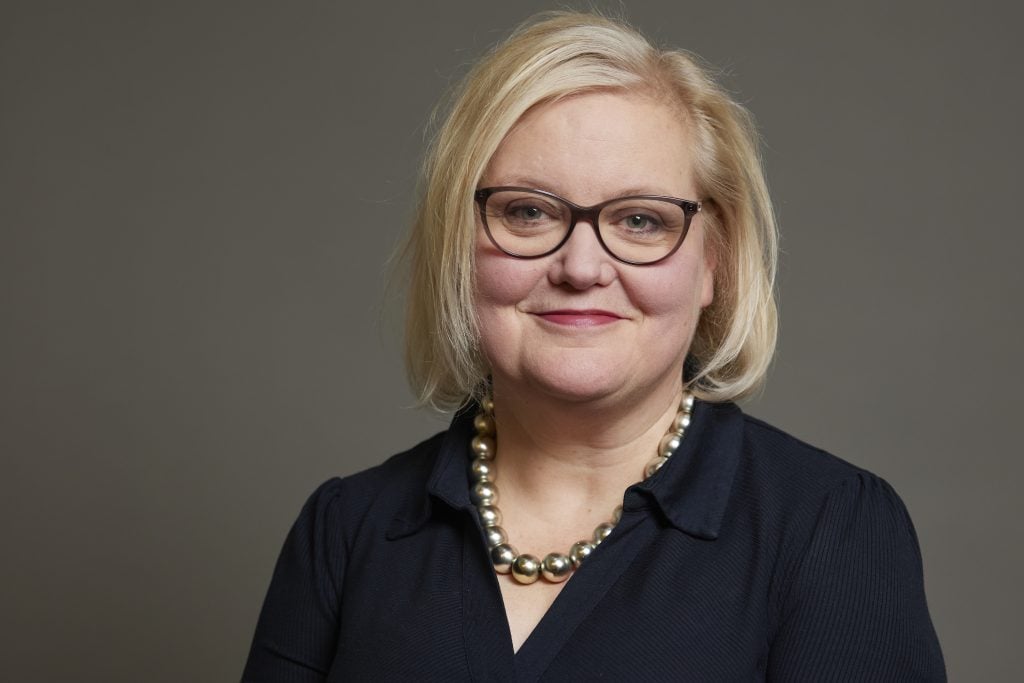Sources in the third sector told NEXT.io multiple gambling harms charities are on the brink of insolvency amid continued disarray with statutory levy funding.
According to sources in the gambling harms sector, multiple gambling charities are teetering on the brink of collapse despite the statutory levy for research, education and treatment having already been collected from operators at the beginning of this month.
It comes after years of warnings, including by senior figures in the sector, that the current situation was a major risk of the statutory levy reforms.
Mark Potter, co-managing director of compliance specialist IC360, told NEXT.io: “They’re miles away from being ready. For me, the biggest issue is if they are actively defunding the current providers and they’re not ready to launch the new providers, that leaves a large gap — and problem gambling doesn’t go away.”
Some smaller organisations, such as lived experience body Alerts Group, have already shut their doors, while others, including frontline treatment organisations, have cut core services and been forced to make multiple rounds of redundancies, while others still have dipped deep into their reserves.
Many groups have been forced to devote their energies to fundraising activities, which has distracted from their core mission and caused a resulting hit to services.
Sources in the gambling harms charity sector have expressed anger and frustration about what they believe has been a poorly handled roll-out that could have serious impacts on problem gamblers in the UK.
Robert Mabbett, safer gambling consultant at Better Change, added: “The issue I have is this gap in funding isn’t a surprise. It feels more like a choice. There’s so much money out there that has been raised through the levy.”
One source told NEXT.io that nearly every single body in the space had experienced serious financial issues.
According to sources, providers were told at a briefing organised by NHS England and the Office for Health Improvement and Disparities (OHID) that that the levy funds would start to be distributed in October.
Despite it now being towards the end of September — nearly a month since operators paid the statutory levy — providers say they have had little to no information about next steps, with many now expecting to be told the funds will not be distributed until at least the new year.
Few who spoke to NEXT.io had a positive view of how the current Labour government has handled the matter, with many suggesting the current gambling minister has not been across it at all.
 Parliamentary Under-Secretary of State for Gambling, Baroness Twycross
Parliamentary Under-Secretary of State for Gambling, Baroness Twycross
A Government spokesperson told NEXT.io: “The government is fully committed to reducing and preventing gambling-related harms and supporting those at risk, and to ensuring a smooth transition to the new statutory levy system.
“We have allocated a portion of statutory levy funding to enable this, ensuring people in need can continue to access treatment services, while new commissioning leads implement future arrangements.
“NHS England, the Office for Health Improvement and Disparities and the appropriate bodies in Scotland and Wales will be responsible for future funding decisions on treatment and prevention under the levy, and will continue to engage with stakeholders on this.”
The System Stabilisation Fund
As the government knew there was going to be a funding gap between the old and new regimes, it implemented a scheme aimed at bridging the difference.
In July 2023, it was announced GambleAware would be given £32.8m in regulatory settlement funds by the Gambling Commission meant to deal with the transitory period, known as the System Stabilisation Fund.
Organisations impacted by the release of the gambling white paper were invited to apply, as well as those looking to proactively move away from industry funding.
“There’s nowhere near enough money in that pot of money, which has been the problem,” one charity source who spoke under condition of anonymity to NEXT.io.
However, multiple sources also expressed frustration about how the money was handled, arguing it was done in an opaque and haphazard way.
“It wasn’t transparent,” one source said, adding that there have always been questions in the industry around how GambleAware has spent its money.
“They’ve always had significant amounts in the bank that have not been distributed, and we don’t know why,” the source said.
“I still believe that they’ve got money that’s sitting somewhere; for whatever reason they’re reluctant to distribute it.”
Others said they were barred access to the money due to them being unable to move away from an industry funding model at the time.
For its part GambleAware, which is set to close at the end of March next year, strongly rejected any allegations funds were not handled correctly.
Chief executive Zoë Osmond OBE told NEXT.io: At GambleAware our priority is to ensure a safe and smooth transfer to the statutory commissioning system to be completed by March 2026. We have and continue to have in place robust commissioning processes that are strategic, evidence-led and include the input of lived experience.
“In the case of the System Stabilisation Fund, all available funding has been used to help stabilise the system including the National Gambling Support Network (NGSN) during the transition period from a voluntary to a statutory levy system.
“The government and Gambling Commission support our work and are sighted on the allocation of funding to maintain the system until the levy is fully in place.
“We strongly rebut any suggestions or comments otherwise.”
Catch-22
Other sources spoke with frustration about what they felt was a series of impossible situations the funding crisis has put them in.
In recent years, the NHS and other bodies have reportedly become increasingly hostile to the charity harms sector due to its historic industry funding model.
Multiple sources said conversations have become more and more aggressive, with many people having apparently been misinformed that because these organisations received industry funding, they were fundamentally compromised or were puppets of gambling companies.
Individuals working in the sector, many of whom are former problem gamblers themselves, said they find such allegations “deeply offensive”.
One source said: “I’ve sat on calls where we’ve been told: ‘we will not receive people — you could be shut down’. That’s the level of it.”
Due to this widespread belief within the public health sector, many organisations with major financial issues find themselves in a Catch-22 situation.
 A Catch-22 is a lose-lose situation where every path to resolution is blocked by the conditions that created the problem.
A Catch-22 is a lose-lose situation where every path to resolution is blocked by the conditions that created the problem.
One anonymous source said: “The predicament we’re in is if we start suddenly taking money from the industry all the way up until that March 2026 deadline then actually is it going to impact our ability to bid for funding under the new system?”
This fear has been exacerbated by the fact that the board set up to oversee the levy process features several individuals with strong political views on the subject.
Another dilemma highlighted by sources was that, even if an organisation decides to bite the bullet and try to access industry funding in a bid to save itself — no matter the long-term implications — there are also pitfalls in appearing too financially distressed.
A leadership figure in the third sector said darkly that from a political perspective, it might actually suit the gambling companies if a harms charity collapses, since it would demonstrate a major issue with the overall reform process.
They added that being in too much financial need may also spook an operator into thinking the money will be spent on fundraising instead of core services.
Money and power
Partner at Regulus Partners Dan Waugh told NEXT.io: “The levy has only ever really been about two things — money and power. The government has effectively made harm prevention and treatment charities dependent on the state by replacing a system of quasi-voluntary donations with a tax; and has then given control of the cash to self-interested state bodies.
“We now have a wide range of organisations kicking, elbowing and pulling hair — figuratively speaking — in order to get hold of some of the money. It is an all-too-predictable mess.”
While some individuals told NEXT.io they believed the current funding crisis was due to poor planning on the part of the government, others said they have come to the view there is a deliberate attempt to starve the gambling third sector of funding.
This, they argue, is because their organisations are seen by some politically anti-gambling public health figures as being fundamentally compromised.
However gambling reform campaigners, who in the past have also argued the third sector is in bed with the industry, are not above efforts to get at the cash too.
One source said they were in a meeting with OHID alongside a prominent campaigner who argued some of the harm prevention money should be directed towards campaign groups to lobby for policy and legislative change.
The individual said they felt this was “absolutely bonkers” and that they believe the levy funding should remain focused on actual frontline services.
Meanwhile, lingering questions remain about how the new system will work in practice, in terms of procurement.
Sources highlighted many smaller organisations don’t have experience applying for funding under UK procurement rules, and that navigating the new system is likely to be a challenge.
However, whatever the case, it is clear the current funding crisis may be putting problem gamblers at risk.
Meanwhile, many people in the space are shocked and saddened by what has happened.
Jordan Lea, chief executive of Welsh gambling harms education and awareness organisation Deal Me Out, said he feel betrayed and let down by how the situation has unfolded.
Lea, who in 2022 won Wales’ highest civilian honour — a St David’s Award — for his work, told NEXT.io: “One year we win that, and the next year we’re not worthy of being in the new system? It feels so deliberate and so planned that it just hurts. It’s gone past anger at this point. It’s just painful.”
Share

